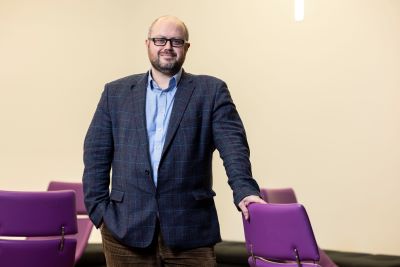Ambition Magazine Feature: Top of the Class
- Date: Mon, Jun 12, 2023
Share this article
Noting a gap in the business and leadership skills acquired during his clinician's training, urological surgeon Dr Fardod O'Kelly enrolled on an executive MBA programme.
By Tim Banerjee Dhoul

Can you tell us a little about your career to date?
I studied medicine at the Royal College of Surgeons in Ireland (RCSI) after completing a degree in biochemistry at Trinity College Dublin. Following completion of my basic surgical training, I did a doctorate in medicine at Trinity College Dublin on prostate cancer and then went on to complete higher surgical training in urological surgery in Ireland.
Having finished my fellowship exams in Ireland, I went on to do two paediatric urology fellowships in Canada before coming back to Ireland to take up a position, primarily in private practice. I also spend two days a week working and lecturing at the RCSI. In addition to this, I’m now on several European boards for urology and have a number of international research collaborations.
Congratulations on winning AMBA’s MBA Student of the Year award 2023. How did it feel to win and has it made any impact on your career so far?
To sum it up in a single word, I would have to say ‘surreal’. I genuinely never expected to win, but it was a huge honour and I feel very privileged.
All my managerial and leadership colleagues have been extremely vocal with their support and praise, but winning hasn’t made a huge impact on my career to date – although it is still very early days. This is partially because the visibility and appreciation of an achievement like this in clinical circles is less than it would be in the business world. However, with more and more clinicians starting to study for an MBA, I hope this will provide inspiration for them.
What motivated you to do an executive MBA and why did you choose to do the course at Michael Smurfit Graduate Business School at UCD?
I always felt that business and leadership skills were significantly deficient in a clinician’s postgraduate career, as there is no formal training process. It has huge future implications for clinical effectiveness, governance, departmental management and the delivery of value-based healthcare.
Read Fardod’s full interview in Ambition here.












